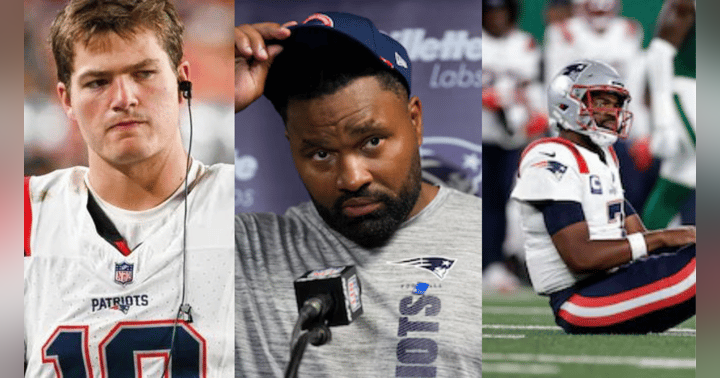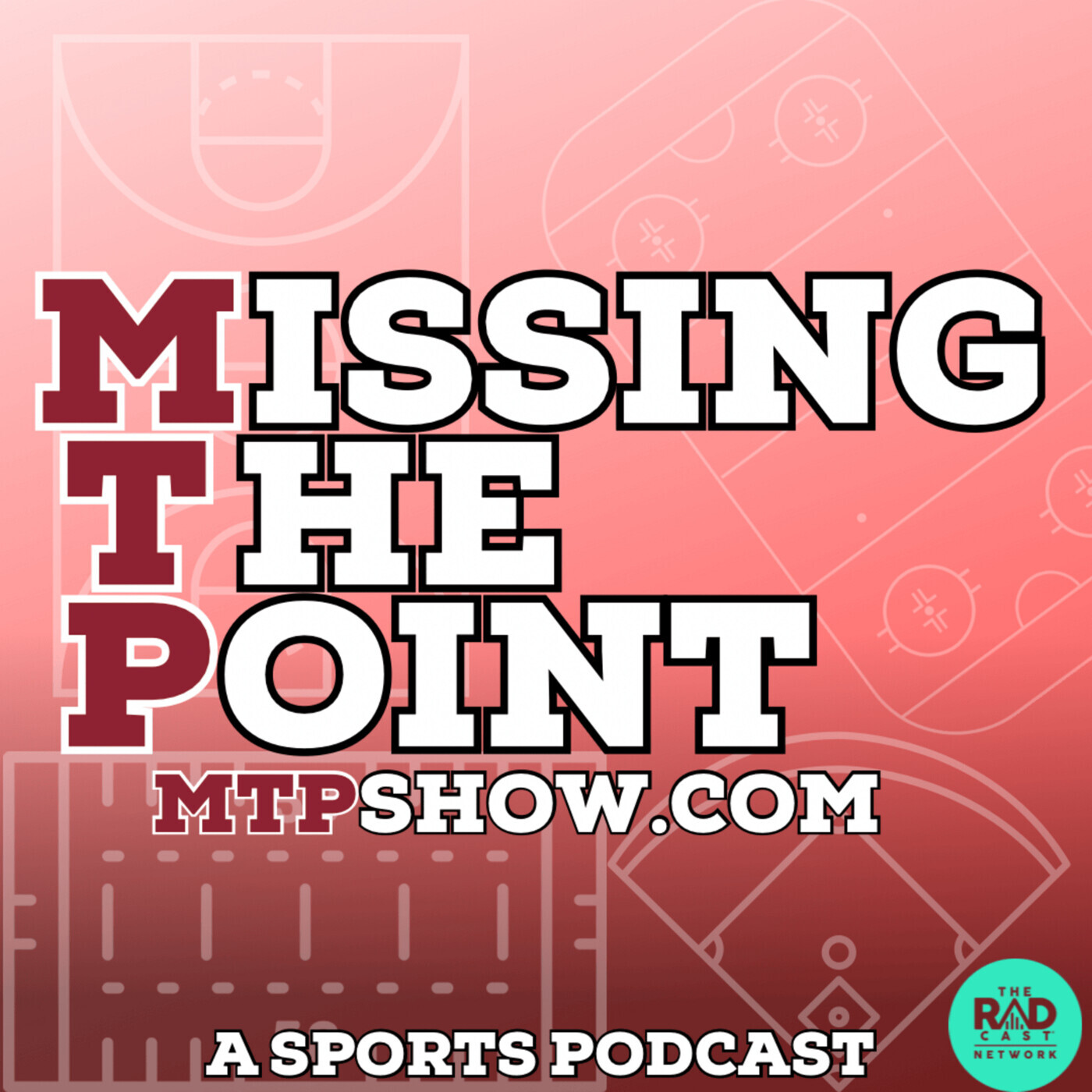Who’s to Blame for the Patriots' Rebuild Struggles: Jerod Mayo, Eliot Wolf, or Robert Kraft?

The New England Patriots, once the gold standard of NFL excellence, now find themselves in a state of decline that seems all too familiar since the departure of Tom Brady. Despite a brief playoff appearance in 2021 under rookie quarterback Mac Jones—where they were dismantled by the Buffalo Bills 47-17—the Patriots have failed to recapture their dominance, and they haven’t won a playoff game since Super Bowl LIII. Now, after a 1-2 start to the 2024 season, the team is struggling to make progress in a rebuilding process that feels perpetually stuck in neutral. The question remains: Who is to blame for the Patriots’ miserable rebuild?
Is it Jerod Mayo, the first-time head coach, who is struggling to make an impact? Is it Eliot Wolf, whose roster-building decisions have left the team with glaring weaknesses? Or does the responsibility ultimately fall on Robert Kraft, the longtime owner who may have placed too much faith in internal hires and conservative roster management?
Jerod Mayo: A Rookie Head Coach Feeling the Heat
Jerod Mayo, a former Patriots linebacker and defensive assistant under Bill Belichick, was promoted to head coach in 2024 to usher in a new era for the franchise. Handpicked by Robert Kraft, Mayo was seen as the right man to lead the team through a rebuild. However, after just three games into the season, it’s clear that Mayo’s transition from assistant to head coach is proving to be a challenging one.
Mayo's inexperience is evident. The Patriots managed a surprising Week 1 victory over the Cincinnati Bengals but followed that with back-to-back losses to the Seahawks and Jets. In the Patriots’ 24-3 loss to the Jets, the team’s offensive and defensive struggles were laid bare. Mayo’s player-friendly approach, designed to be more relatable to the modern athlete compared to Belichick’s authoritarian style, has not yet translated to success on the field. Missed tackles, poor late-game execution, and a failure to generate offensive momentum have become all too common under Mayo’s leadership
In fact, even rookie quarterback Drake Maye’s brief appearance late in the game against the Jets didn’t offer much hope. Maye entered the game with 4:24 remaining and the Patriots trailing 24-3. He completed four of eight passes for 22 yards, scrambled for 12 yards, and was sacked twice as he was hit five times behind a crumbling offensive line. While the performance was a valuable learning experience, it highlighted just how much work remains for Mayo and his coaching staff
Eliot Wolf: A Roster Built on Flawed Decisions
While Mayo’s growing pains are evident, the real issue lies in the construction of the Patriots’ roster, which falls squarely on the shoulders of Eliot Wolf, the team’s Executive Vice President of Player Personnel. The Patriots entered the 2024 offseason with $47 million in cap space, a golden opportunity to bring in top-tier talent and shore up key positions. Yet, Wolf’s conservative approach has left the roster with glaring weaknesses, particularly on the offensive line.
One of Wolf’s biggest missteps has been his handling of the left tackle position. The decision to sign Chukwuma Okorafor, a career right tackle, and attempt to convert him to left tackle has been an unmitigated disaster. Okorafor was benched after just 12 snaps in Week 1, and the Patriots have since struggled to find a suitable replacement, forcing them to rely on rookies and injury-prone players like Vederian Lowe. The result? The Patriots have the worst-ranked pass-blocking unit in the NFL, according to Pro Football Focus, and both Brissett and Maye have faced relentless pressure in every game
Cole Strange, the Patriots’ first-round pick in 2022, has also been a disappointment. Strange has been plagued by injuries throughout his young career and is currently rehabbing a knee injury that has kept him out of most of the 2024 season. While Strange’s return is expected in October, his presence alone may not be enough to fix the offensive line’s deep-seated issues.
Despite these shortcomings, the Patriots are sitting on $36 million in unused cap space, the third-most in the NFL. This financial flexibility could have been used to address glaring holes in the roster, yet Wolf has opted to play it safe, leaving the Patriots vulnerable to the same issues week after week. The team’s decision-making in the offseason has left the Patriots in a bind, and if Wolf doesn’t use the available cap space soon, the team risks wasting another year of rebuilding and squandering the development of its young quarterback, Drake Maye
Robert Kraft: The Owner’s Responsibility
While both Mayo and Wolf are responsible for the Patriots’ on-field performance and roster management, the ultimate responsibility lies with Robert Kraft. Kraft has been a visionary owner, guiding the Patriots to six Super Bowl victories and overseeing one of the most successful dynasties in sports history. But his recent decisions, particularly his loyalty to internal hires like Mayo and Wolf, have contributed to the team’s current struggles.
Kraft’s decision to bypass a comprehensive coaching search after Belichick’s departure and promote Mayo from within is now coming under scrutiny. Mayo was the logical choice based on his history with the team, but was he the right choice for a franchise that needed fresh ideas and more aggressive leadership? There were more experienced candidates available, like former Patriots player Mike Vrabel, but Kraft opted for continuity rather than seeking an external candidate with a proven track record.
Similarly, Kraft’s trust in Eliot Wolf to handle the roster rebuild has come under fire. With $47 million in cap space entering the offseason and significant weaknesses on the roster, Kraft had the opportunity to push for more aggressive moves. Instead, the Patriots took a conservative approach, opting for lower-tier free agents and mid-round draft picks that have not panned out. For a team that hasn’t won a playoff game since 2018, Kraft’s failure to push for a more aggressive rebuild is a major reason why the Patriots are still struggling
Drake Maye: Can He Avoid Mac Jones’ Fate?
The Patriots’ selection of Drake Maye with the No. 3 overall pick in the 2024 NFL Draft was supposed to be a turning point for the franchise. After Mac Jones’ disappointing tenure, which ended with him being traded to the Jacksonville Jaguars, Maye was seen as the future of the organization. However, if the Patriots’ offensive line issues aren’t addressed, Maye could find himself facing the same struggles as Jones.
Maye’s brief appearance against the Jets offered a glimpse of his potential but also served as a reminder of the challenges he faces. In just over four minutes of play, Maye was sacked twice and hit five times, all while completing four of eight passes for 22 yards and scrambling for 12 yards. Without adequate protection, it will be nearly impossible for Maye to develop into the franchise quarterback the Patriots need.
The Patriots have a chance to turn things around, but it will require a more aggressive approach to roster-building. If they fail to surround Maye with the protection and weapons he needs, the team risks stunting his growth and repeating the mistakes they made with Mac Jones
The Patriots’ Playoff Drought: A Franchise in Decline
The Patriots haven’t won a playoff game since their Super Bowl LIII victory in 2018, and their brief playoff appearance in 2021—where they were blown out by the Buffalo Bills—was a stark reminder of how far they had fallen. For a team that once set the standard for success in the NFL, failing to make the playoffs for multiple consecutive seasons is a bitter pill to swallow.
With the way the 2024 season is shaping up, it’s hard to imagine the Patriots breaking their playoff drought this year. The roster has glaring weaknesses, the coaching staff is inexperienced, and the team seems to lack the top-tier talent needed to compete in a tough AFC. For a franchise that once measured success by Lombardi trophies, this new reality of struggling just to make the playoffs is a stark contrast to the dynasty years.
Who’s Really to Blame for the Patriots’ Rebuild Struggles?
As the Patriots stumble through the early weeks of the 2024 season, it’s clear that there is no single person to blame for the team’s struggles. Jerod Mayo’s inexperience as a head coach is evident, Eliot Wolf’s conservative approach to roster-building has left the team with significant weaknesses, and Robert Kraft’s loyalty to his internal hires has prevented the Patriots from making the bold moves necessary to return to contention.
The decision to draft Drake Maye was supposed to be a turning point, but unless the team can fix their offensive line and surround him with better talent, his development could be stunted just like Mac Jones before him. With $36 million in unused cap space, the Patriots have no excuse for their current struggles—but the clock is ticking, and if changes aren’t made soon, this rebuild could drag on for years to come.



